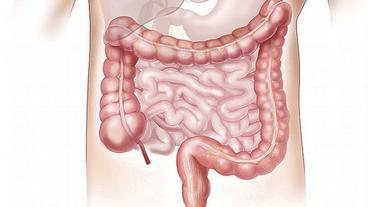WHAT IS COLON CANCER?
Colon cancer, rectal cancer, or colorectal cancer is the malignancy of the large
intestine. Malignancy is the overproduction of cells in an unchecked and
uncontrolled fashion. Often it is due to growth of colon or rectal polyp or
unregulated inflammatory bowel disease (Crohns disease or Ulcerative Colitis).
RISK FACTORS FOR COLON CANCER AND REASON TO CONSULT
WITH A LOS ANGELES COLORECTAL ROBOTIC SURGEON.
The following are predisposing factors related to colon cancer;
· Previous family history of the disease
· Pre-existing rectal polyps
· An underlying inflammatory bowel disease
· Excessive intake of fat, sugars, red meat, and processed meat
· Alcoholism
· Sedentary lifestyle
SIGNS & SYMPTOMS
It mainly depends on the involved area of the large intestine and the extent of disease. A majority of the cases of colon cancers don’t show any symptoms at all. Symptoms, if any, that may appear are;
· Blood in stool
· Changed bowel habits
· Weight loss
Nausea, vomiting
· Constipation
· Rectal bleeding
DIAGNOSIS & TREATMENT
A complete history and physical examination will lead your doctor to suspicion of
colon cancer.
Your doctor may advise sigmoidoscopy or colonoscopy.
These two procedures allow the doctor to inspect different parts of the colon and may also be used to take the specimen of the suspected area.
Sigmoidoscopy, however, has some limitations in all parts of the colon.
Colonoscopy in turns allows for examination of the entire colon.
Once the biopsy result establishes the diagnosis of colon cancer, a treatment plan is devised for each case differently depending upon the depth and extent of disease. Treatment of the colon cancer focuses mainly on surgical removal of the diseased with or without adjuvant chemotherapy.
Three possible surgical procedures can achieve the goal but each with more
advantages than the previous one.
Conventional open surgery requires a big incision. A surgeon directly operates on the diseased part, cuts it and reunites the both ends of the colon. The wound is closed with a conventional suturing technique.
Drawbacks of the open surgery outweigh its advantages.
Delayed wound healing, prolonged hospital stays, incease in pain, late return to normal routine life, and greater chances of infection and future hernias make this approach the least surgery of choice in most of the cases.
This approach may be necessary in extremely challenging surgeries on patients with extensive abdominal scar tissues and multiple prior surgeries.
Laparoscopy is a moderately advanced surgical option for colon cancer.
3 to 6 small (keyhole) incisions make this surgery possible.
Tube carrying instruments and camera are inserted via these keyholes.
A surgeon holds the other end of the tube and operates watching on the screen.
The goal of the treatment remains the same that is to cut the diseased part, and re-
attach both ends of the colon.
This procedure is performed by trained laparoscopic surgeons and comprises
several advantages over conventional one e.g., early wound healing, less hospital
stay, early return to routine life, and lesser infections.
Robotic Surgery is the state of the art and super-advanced surgical options
available to a few fortunate in the developed world.
It uses small keyhole incisions.
Tubes for the camera are inserted in almost the same manner as in laparoscopy but the difference is that these are attached to robotic arms instead of the surgeon’s hands. The surgeon indirectly operates sitting on console, viewing in 3D, controlling the robotic arms with master controllers.
This procedure has the following advantages;
· Amplification of a surgeon’s skill
· 3D view
· Elimination of tremors
· Full range of motion
· Small keyhole incisions
· Least chances of infection
· Least time of hospital stay
· Earliest return to normal life
· Comfortable Surgeon Position
The following table shows the comparison of these three surgical options.
Attributes Open Surgery Laparoscopic Surgery Robotic Surgery
1.Incision size Big Incision Small keyhole
incisions
Small keyhole
incisions
2.Wound Healing Delayed Early Earliest
3.Return to routine life Delayed Early Earliest
4.Chances of Infection
Higher Lower Lowest
5.Blood loss Highest Lower Lowest
6.Range of motion Limited (Human arm) Limited (Human arm) Full range (Robotic arm)
7.View Direct 2D 3D
8.Hand tremors Present Eliminated
9.Level of advancement Classical Treatment
Moderately Advanced State of the Art, latest
10.Level of expertise Required by surgeon
Normal Higher Highest
CHOOSING THE RIGHT SURGEON
Surgery Group LA (Los Angeles) is a team of highly skilled board-certified
surgeons with vast experience in robotic surgeries, conventional laparoscopic, and open colorectal surgeries. Resection of the diseased part along with the safe cancer-free margins is the goal
of surgery in colon cancer. Achieving this goal via robotic surgery minimizes the associated complications of open surgery. It all adds up to early and better recovery of the patient.
Schedule an appointment with us for the evaluation and recommendations for you or your loved one’s condition so you can make an informed decision.


Recent Comments